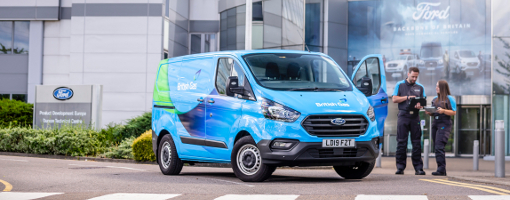Lithium-ion batteries, which power electric cars and electronics, might herald emission free transport, but Amnesty International is highlighting the links they have to human rights abuses including child labour in the Democratic Republic of Congo (DRC), and environmental risks which could undermine their green potential.
“Finding effective solutions to the climate crisis is an absolute imperative, and electric cars have an important role to play in this. But without radical changes, the batteries which power green vehicles will continue to be tainted by human rights abuses,” said Kumi Naidoo, Amnesty International’s secretary general.
Amnesty International has documented serious human rights violations linked to the extraction of the minerals used in lithium-ion batteries, particularly in the DRC. A 2016 investigation found children and adults in southern DRC working in hand-dug cobalt mines facing serious health risks, neither protected by the government nor respected by companies that profit from their labour. Amnesty’s research has linked these mines to the supply chains of many of the world’s leading electronics brands and electric vehicle companies. With more than half of the world’s cobalt originating in southern DRC, the chance that the batteries powering electric vehicles are tainted with child labour and other abuses is high.
Amnesty has been researching the issue since 2016, and as a result several manufacturers, including Apple, BMW, Daimler, Renault, and the battery manufacturer Samsung SDI, have published data about their supply chains, but Amnesty is now calling on others to do the same. Adding to the concerns is the fact that most of the current manufacturing of lithium-ion batteries is concentrated in China, South Korea and Japan, where electricity generation remains dependent on coal and other polluting sources of power.
Amnesty International is also calling on companies to ensure that batteries are disposed of responsibly. There is already significant evidence showing that battery waste from electronics, which contains various hazardous materials, has been irresponsibly disposed of, contaminating soil, water and air.
Amnesty International and Greenpeace have outlined a vision for an ‘ethical battery’ which does not harm human rights or the environment at any stage of its lifecycle. The organisation is calling for action by government, industry, innovators, investors and consumers to create an ethical and sustainable battery, which can be used for electric vehicles and in the electronic industry, within five years.
Latest News
-
Sainsbury’s links up with Comic Relief for festive recipe campaign
-
Shepherd Neame extends air ambulance charity partnership
-
Businesses help festive match funder raise a record £57.4m
-
Firms help fund regional mayors' initiatives to tackle childhood inequality
-
Retailer raises more than £16,000 for Down’s Syndrome group
-
Snacks firm staff to donate £75,000 to charities
© 2019 Perspective Publishing Privacy & Cookies







Recent Stories